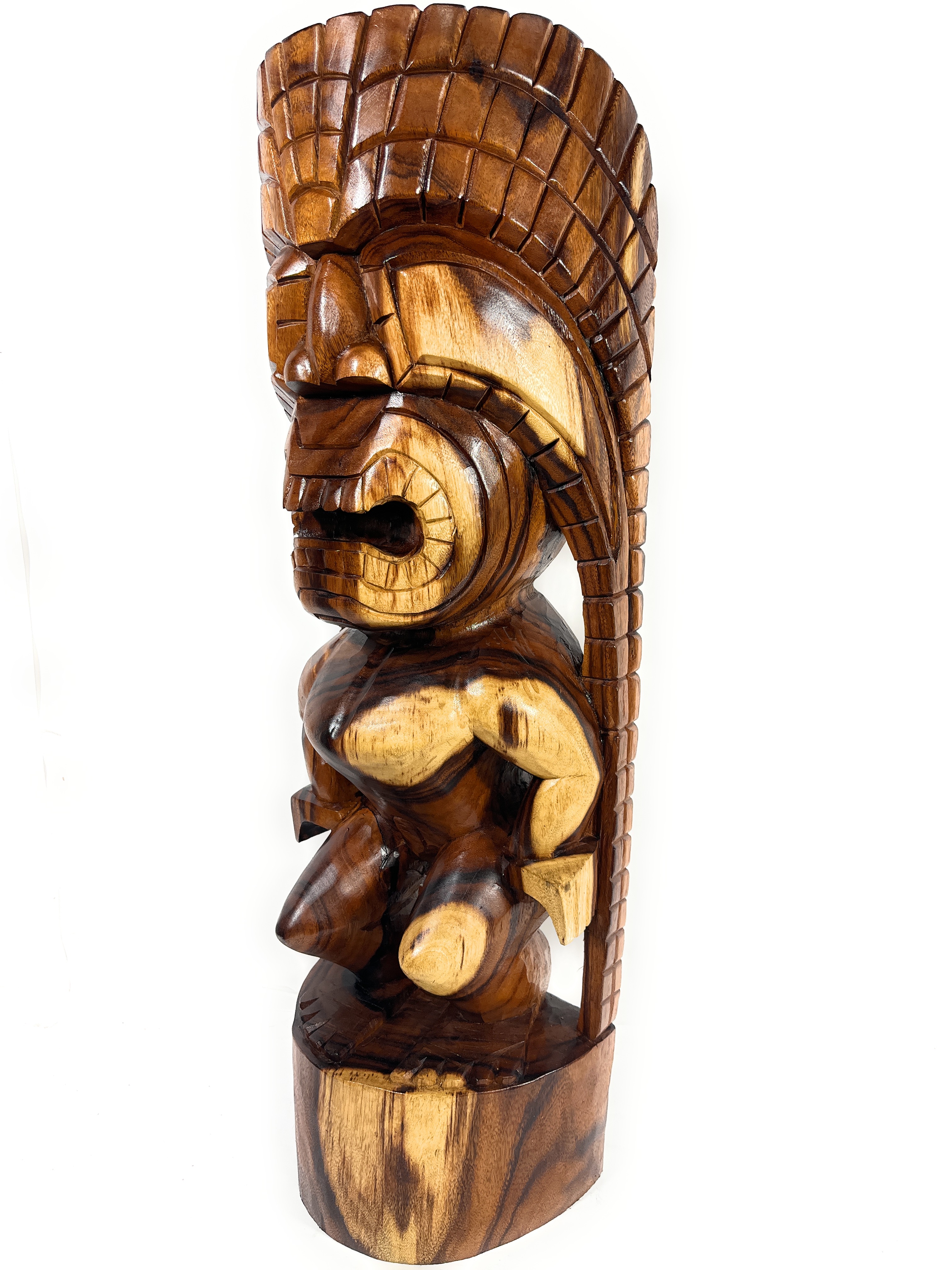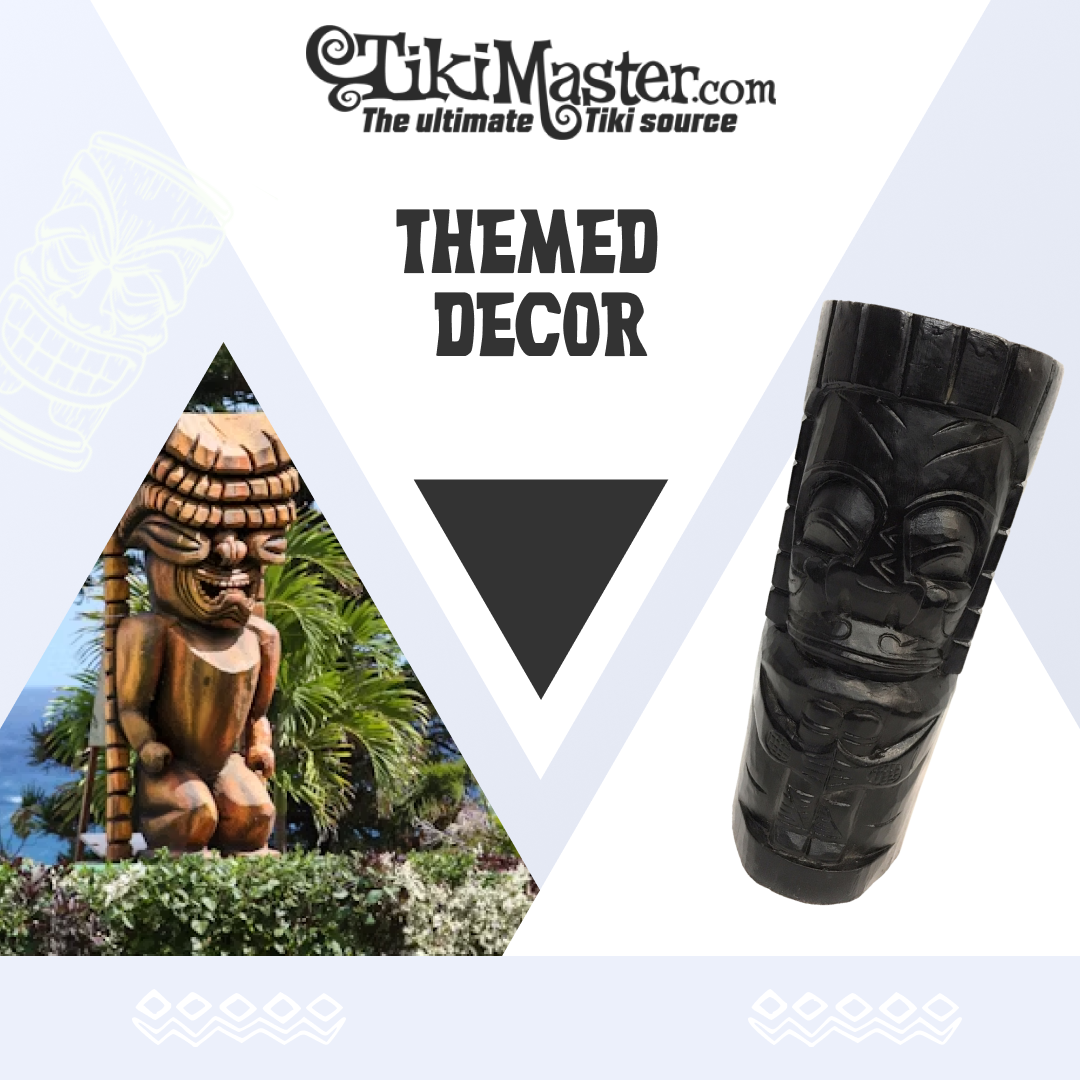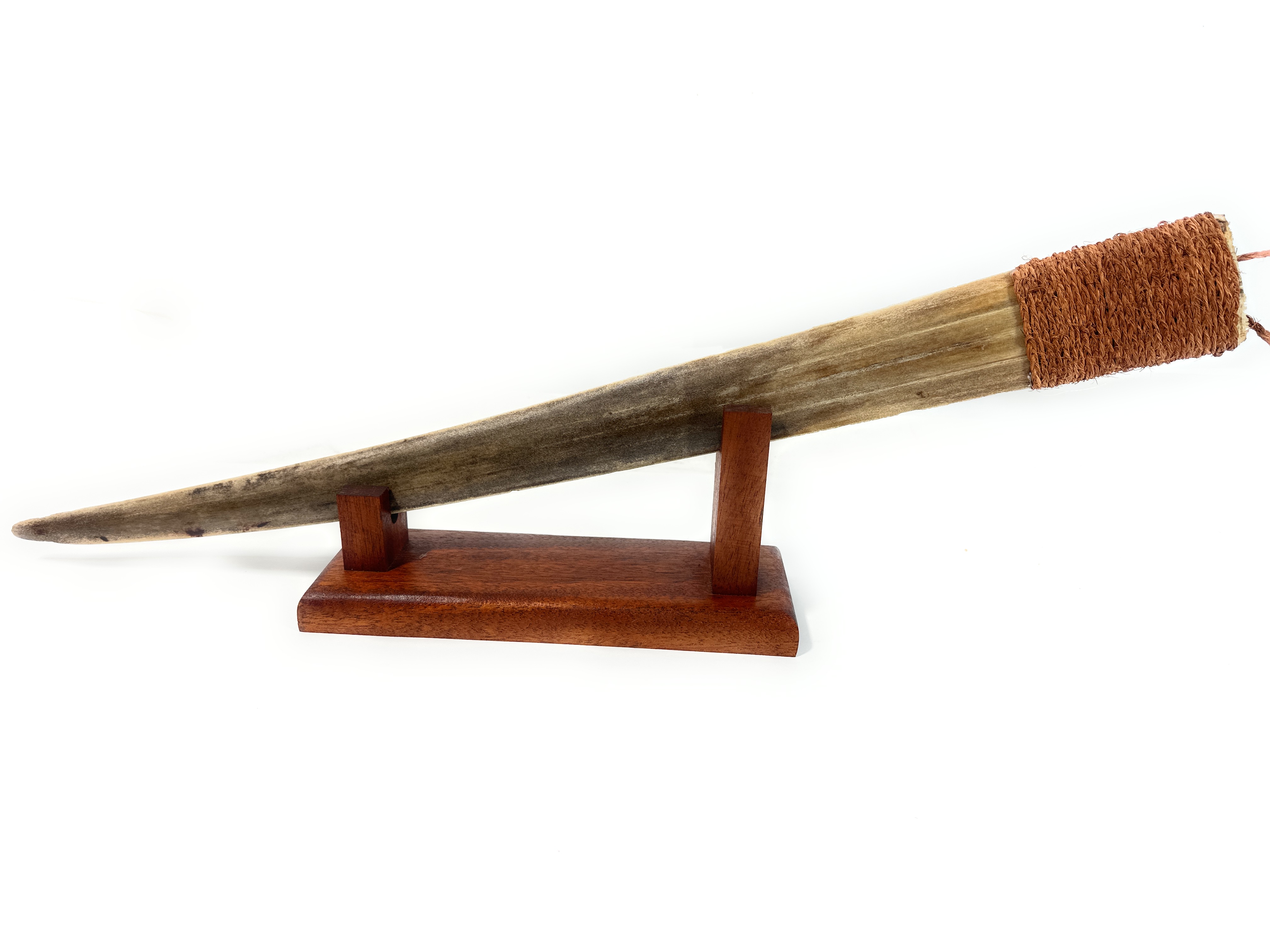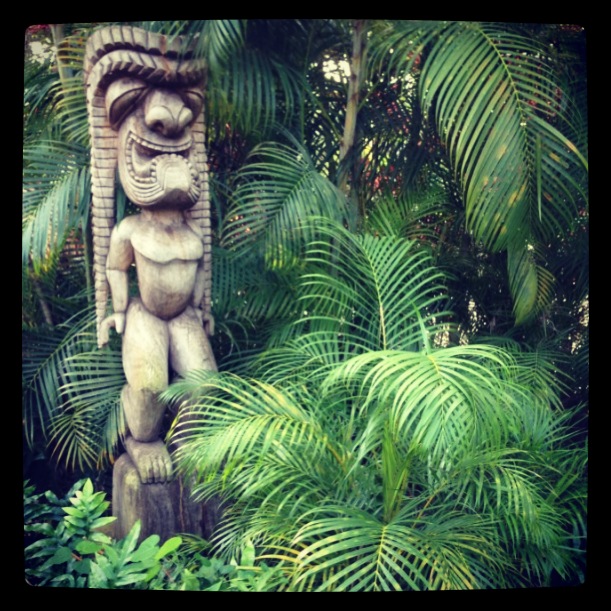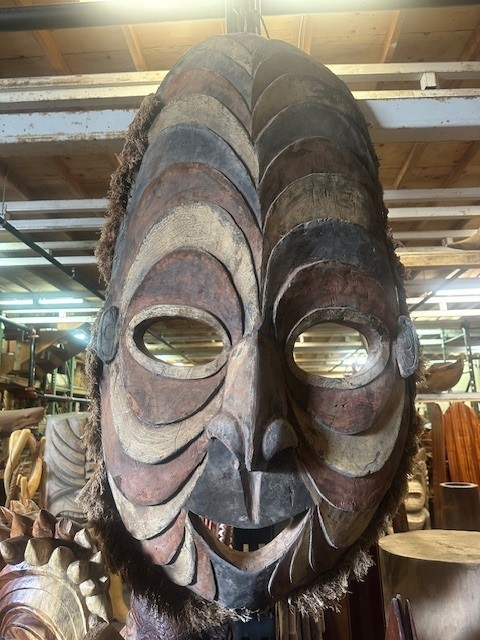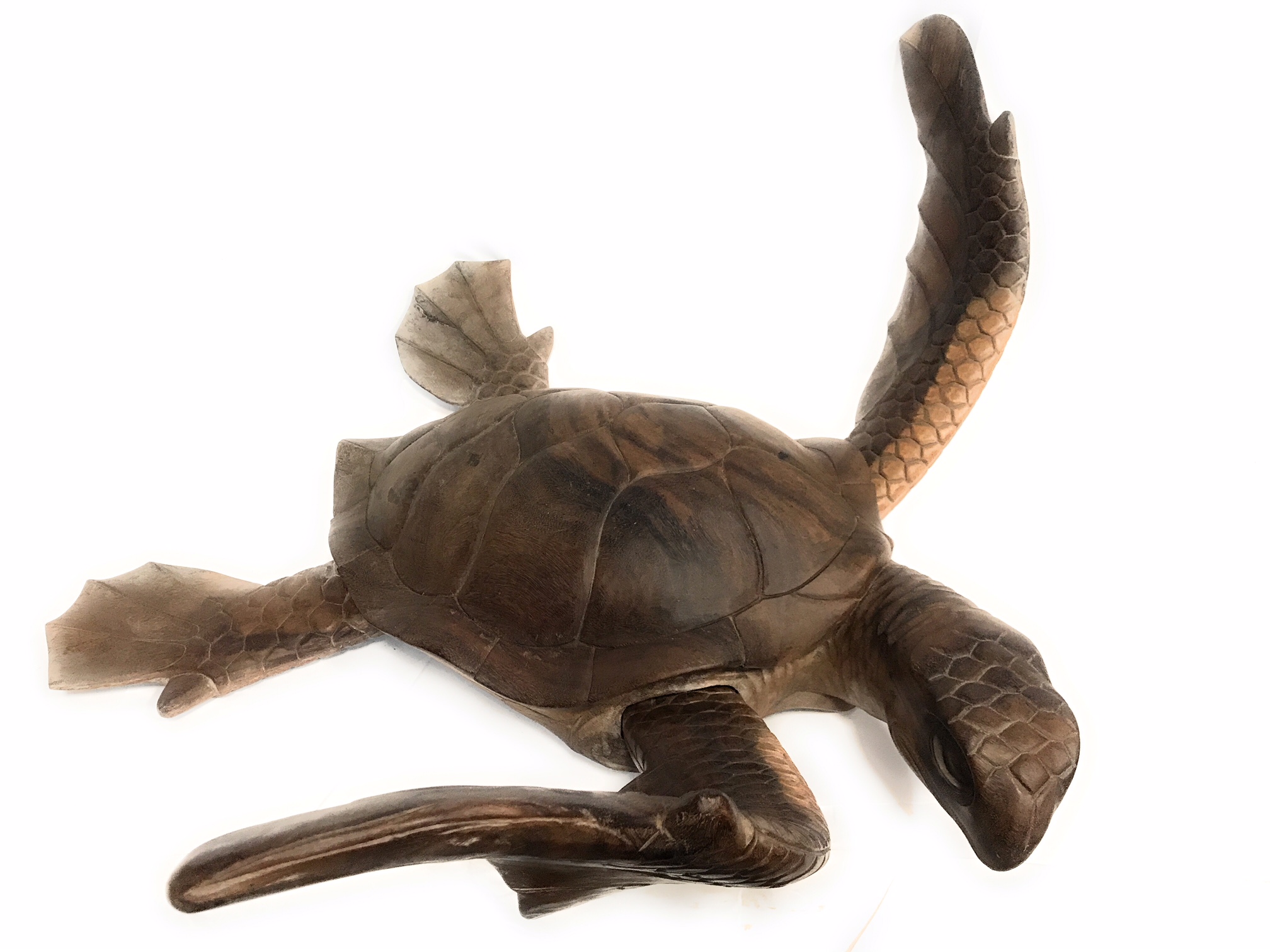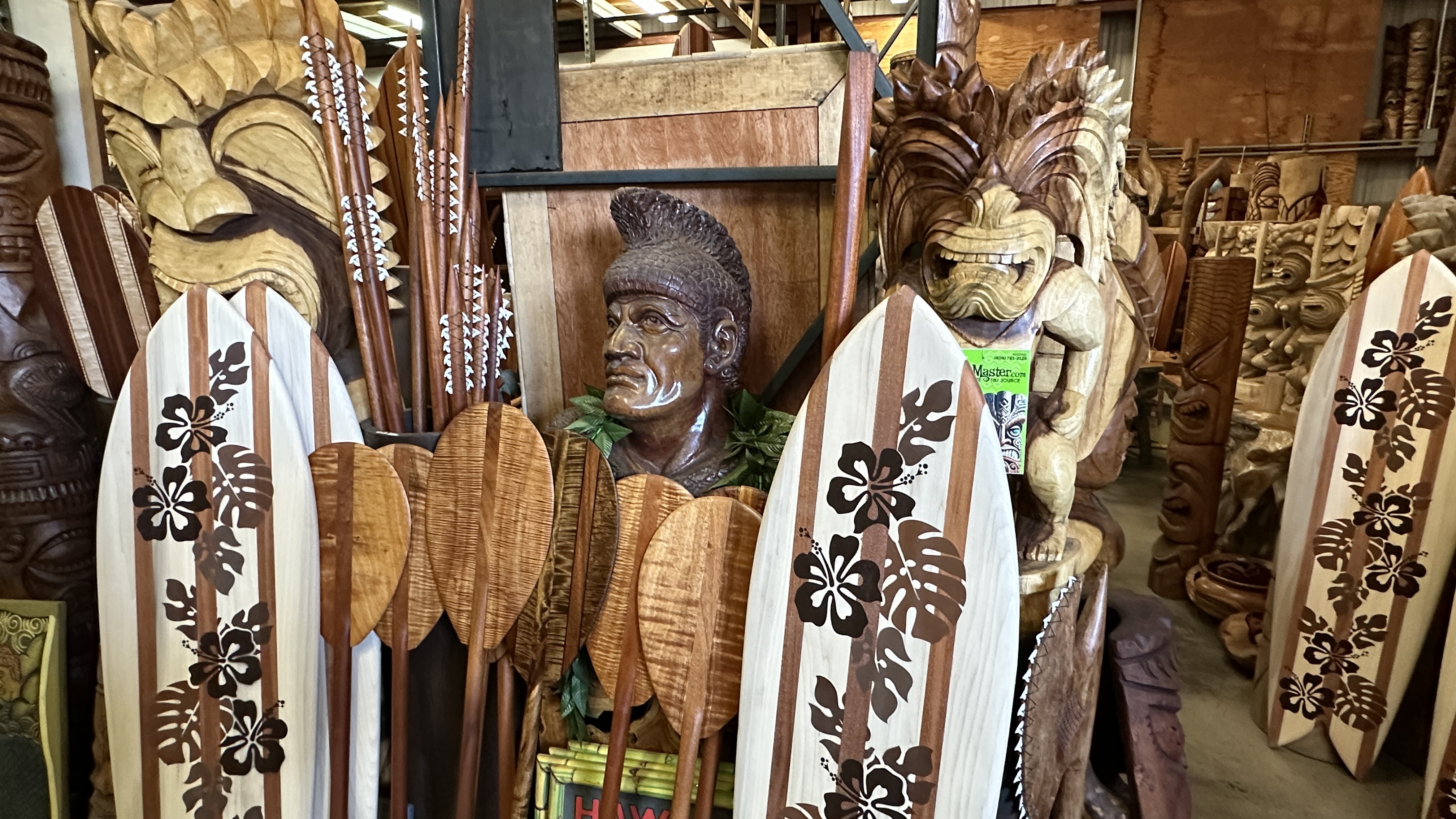Looking to learn more about the Tiki God names? You came to the right resource. Tikimaster.com put together an easy way to learn more about Hawaiian tikis, their meaning and the style of their headdress:
The major Tiki god names are: Ku, Kuka Ilimoku, Lono, Kane, Hina, Pele, Kanaloa, Aku Kai
Hawaiian tiki refers to the carved wooden or stone figures often associated with Hawaiian and Polynesian cultures. They are used as decorative elements and can represent various deities, ancestors, or spirits in traditional beliefs. Tiki statues are also popular symbols in tiki bars and tropical-themed decor.
Tiki Kuka Ilimoku: Kuka'ilimoku is a Hawaiian war god often depicted with a feathered helmet and a spear. He's associated with protection and warfare in Hawaiian mythology. The tiki representation might vary, but it typically embodies his divine presence.
Kuka'ilimoku, the Hawaiian war god, is often associated with protection, strength, and warfare. The name itself can be broken down into "kuka," meaning to pierce or strike, and "ilimoku," which refers to the forehead. This combination suggests a connection to the act of piercing with a spear. The god is sometimes considered a symbol of the ruling chief's power and a guardian deity for the people.
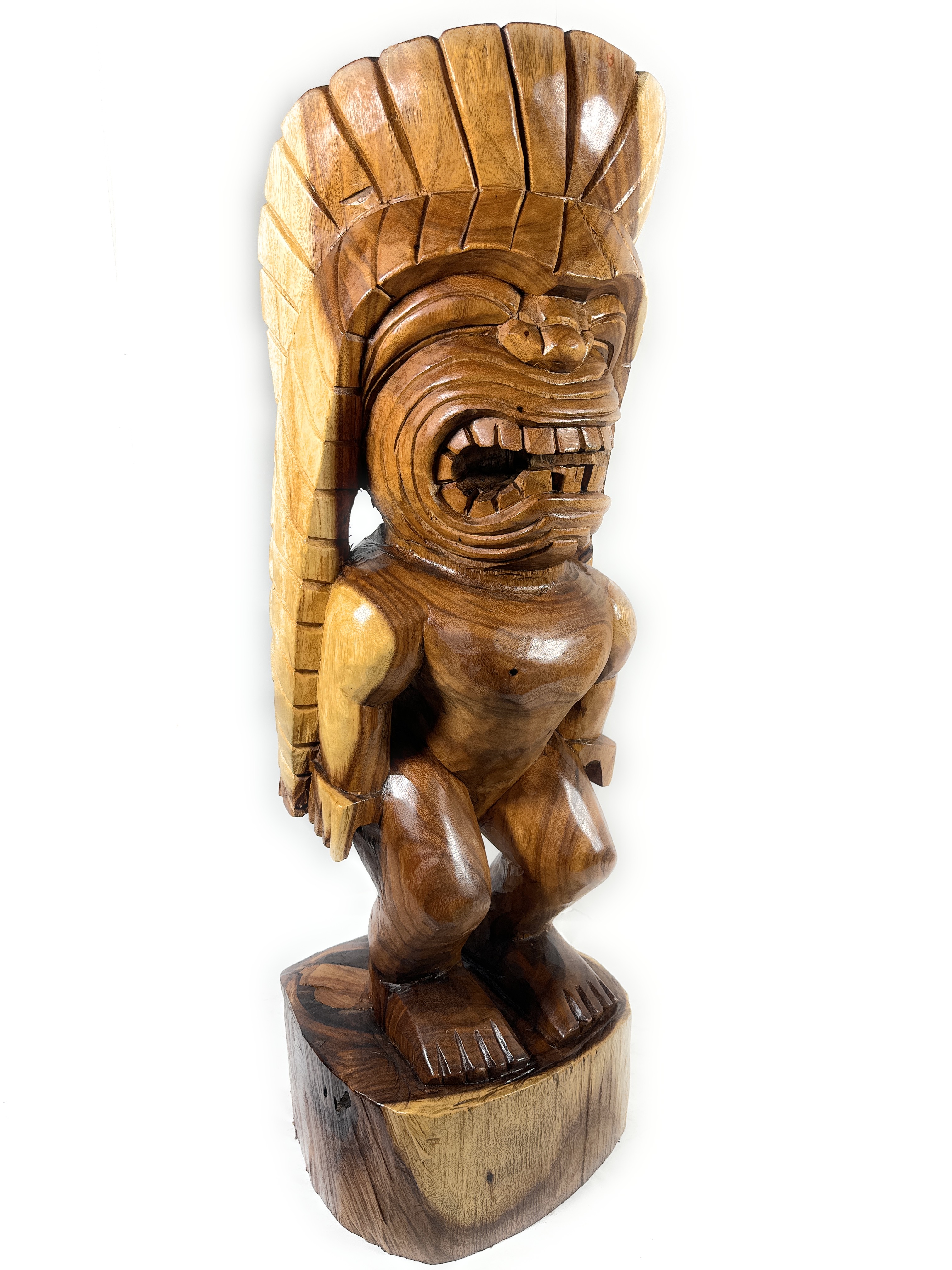
The origin of Kuka'ilimoku lies in Hawaiian mythology. He is a significant figure in the traditional beliefs of the Hawaiian people, and his stories are deeply rooted in their cultural and spiritual heritage. Kuka'ilimoku is often depicted as a war god, associated with protection and strength, and has a role in the belief system that shaped the worldview of the Hawaiian people. The specifics of his origin story may vary, as mythology often involves different versions and interpretations passed down through generations.
Tiki Ku: "Tiki Ku" likely refers to a specific type or representation of a Tiki figure. In Hawaiian culture, Tiki Ku is often associated with the god Ku, who is a significant deity associated with war and prosperity. The Tiki Ku statues typically depict a strong and fierce-looking figure, representing the attributes of the god Ku
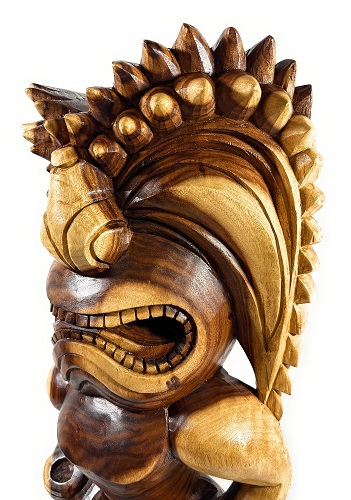
Tiki Lono: "Tiki Lono" likely refers to a Tiki figure associated with the Hawaiian god Lono. Lono is a deity associated with fertility, agriculture, and peace. Tiki statues representing Lono might depict a more peaceful and benevolent figure, often adorned with symbols of abundance and harvest. The specific characteristics can vary, but Tiki Lono is generally linked to these positive aspects of Hawaiian spirituality.
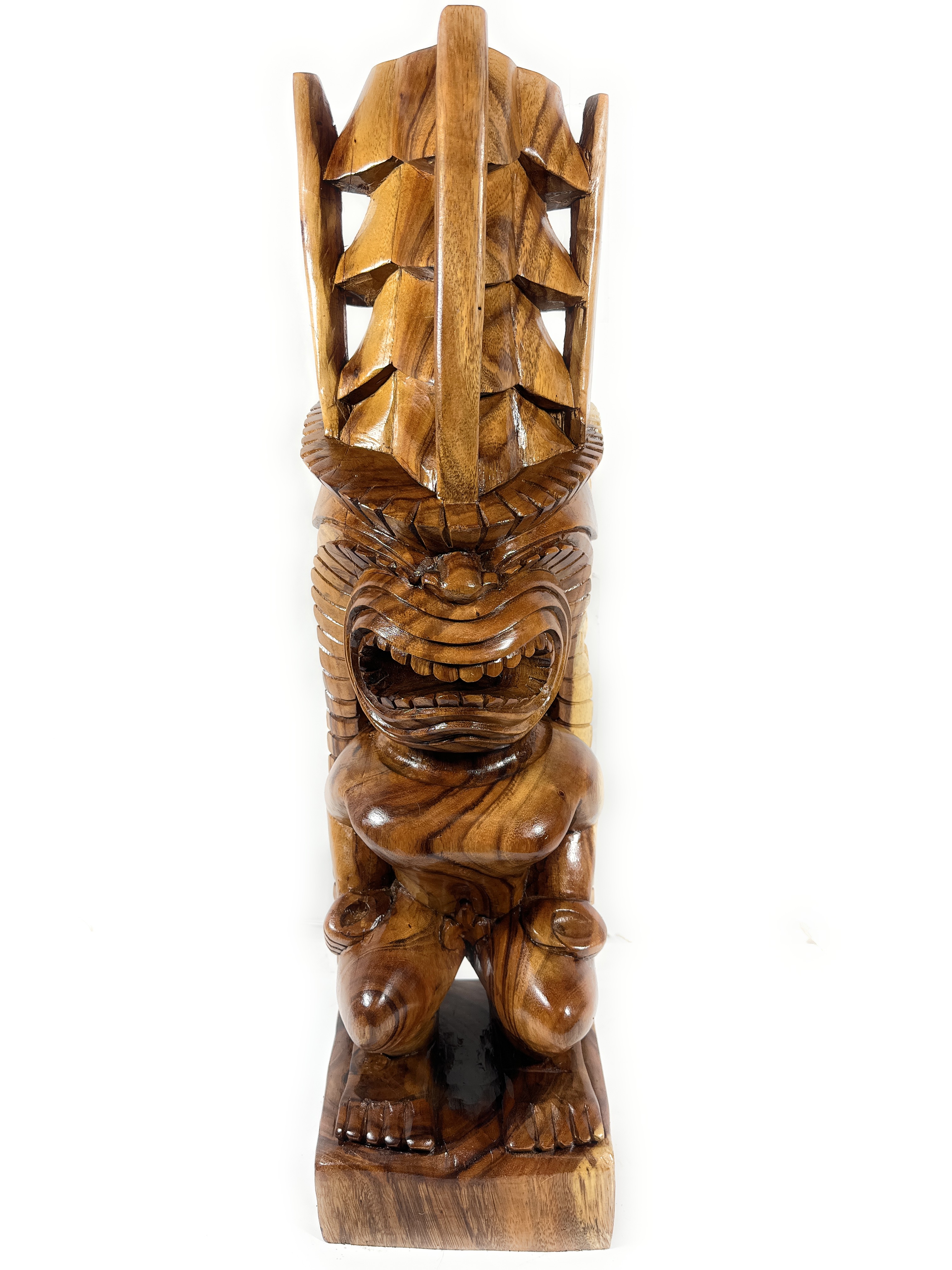
Tiki Goddess Pele: Goddess Pele is a significant figure in Hawaiian mythology, representing the goddess of fire, lightning, wind, and volcanoes. Pele is considered both a creator and a destroyer, associated with the volcanic landscapes of Hawaii. Legends depict her as a powerful and passionate deity who resides in the Halema'uma'u crater at the summit of Kīlauea on the Big Island of Hawaii. The eruptions of volcanoes are seen as expressions of her temper. Pele holds a prominent place in Hawaiian culture, with various stories, chants, and rituals dedicated to her.
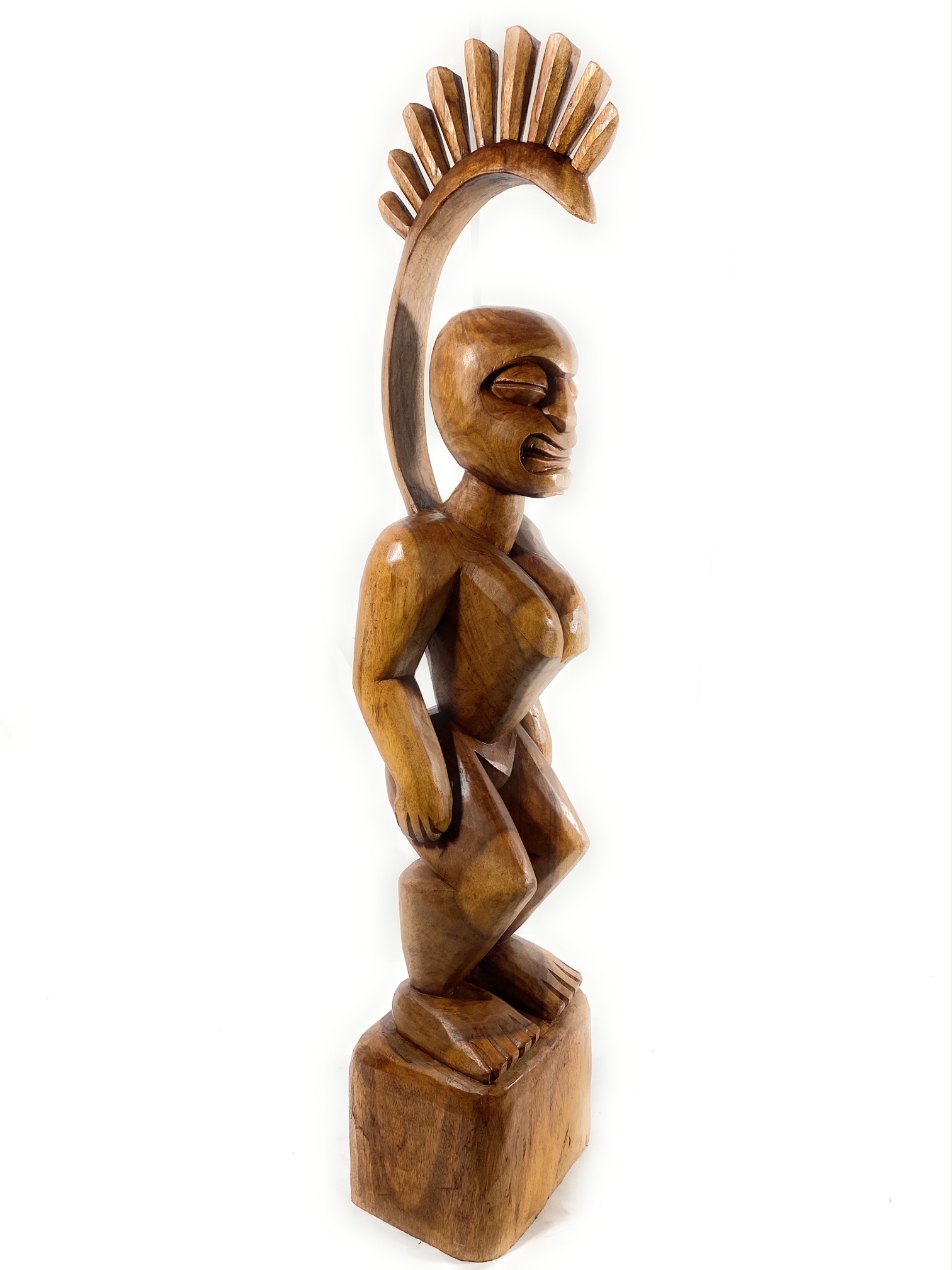
Tiki Kane: "Tiki Kane" likely refers to a Tiki figure associated with the Hawaiian god Kane. Kane is a major deity in Hawaiian mythology, associated with creation, sunlight, and life. Tiki Kane statues might represent this god and can vary in their depictions. Kane is considered one of the four major gods in Hawaiian tradition, along with Ku, Lono, and Kanaloa, each associated with different aspects of life and nature. Tiki Kane figures may symbolize fertility, growth, and the life-giving properties associated with this deity.
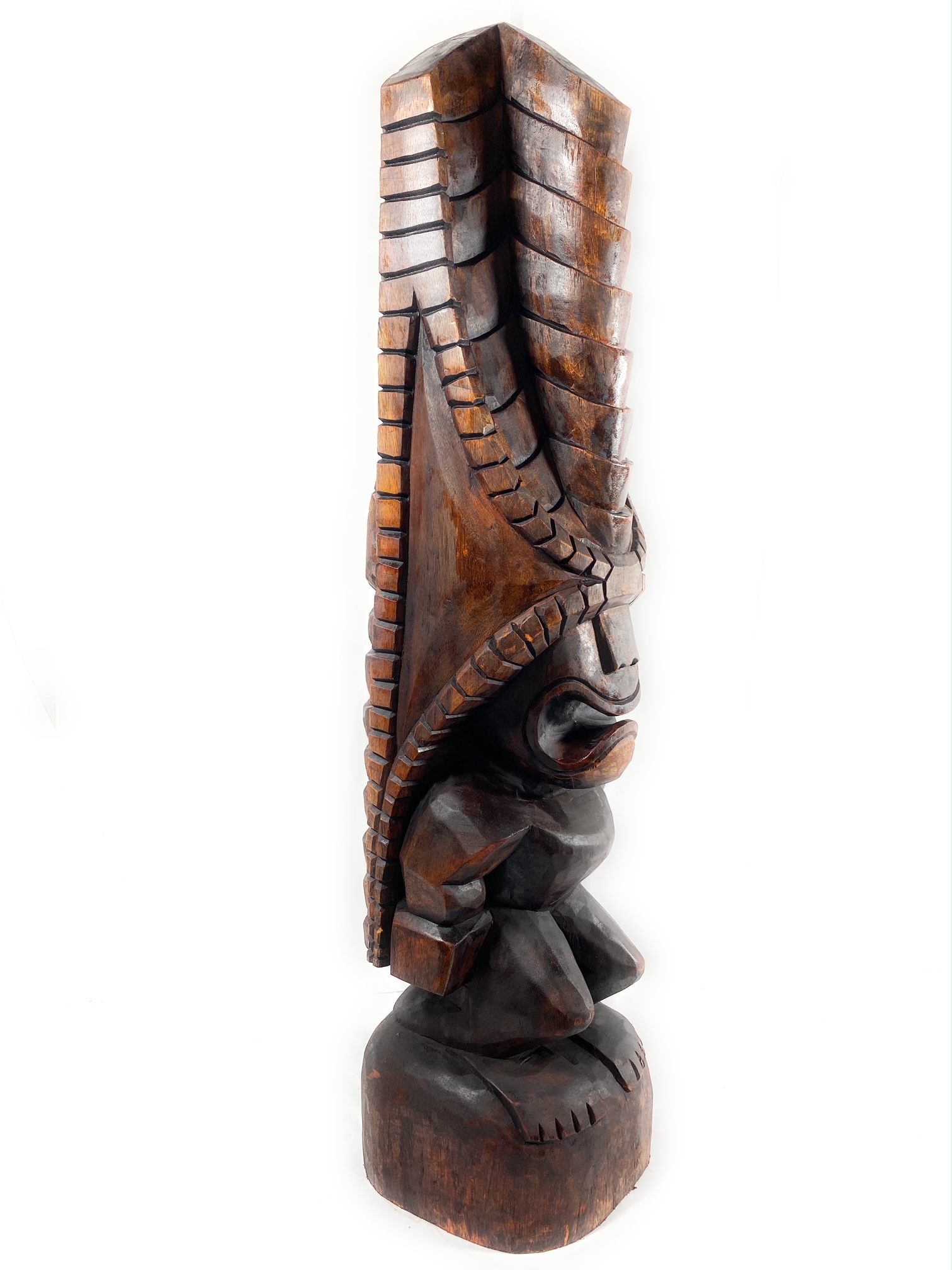
Tiki Kanaloa: "Tiki Kanaloa" likely refers to a Tiki figure associated with the Hawaiian god Kanaloa. Kanaloa is one of the four major gods in Hawaiian mythology, alongside Kane, Ku, and Lono. Kanaloa is often linked with the ocean, marine life, and healing. Tiki statues representing Kanaloa may vary, but they generally embody the attributes and symbolism associated with this deity.
In traditional Hawaiian beliefs, these gods played distinct roles, and Kanaloa's influence was particularly connected to the sea and the mysteries within it. Tiki Kanaloa figures may carry elements reflecting the god's association with the ocean and healing powers.
